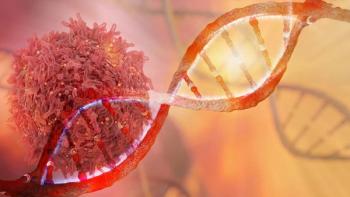
Tumor Genomics & the Inevitable Incidental Findings
The concept of an “incidentaloma” became a phenomenon with improved imaging technologies and increased use in the clinical setting, and refers to a tumor or other abnormal findings on a scan performed for other reasons. Now with increased tumor molecular profiling, healthcare professionals and patients have to contend with incidental germline findings.
The concept of an “incidentaloma” became a phenomenon with improved imaging technologies and increased use in the clinical setting, and refers to a tumor or other abnormal findings on a scan performed for other reasons. Now with increased tumor molecular profiling, healthcare professionals and patients have to contend with incidental germline findings.
Unlike traditional genetic germline testing where medical genetic physicians and genetic risk counselors are extensively involved in determining who should undergo testing based on family history and pedigrees as well as delivering pre- and post-test patient counseling, this is not generally the case for molecular tumor profiling. However, it is well documented that when doing genetic tumor testing, germline variants of varying clinical significance can and do bleed into the tumor results. The easiest way to filter these is with a matched germline sample from healthy tissue that can be analyzed and then used to subtract the genetic variants likely to be germline and thus unlikely to be driver mutations for the particular tumor. It is important to consider that introducing a germline testing component adds in additional layers of ethical and logistical complexity.
The American College of Medical Genetics and Genomics (ACMG) has put out guidelines that recommend the return of 56 actionable genes if identified during the genetic analysis of tumor-genome pairs, about half of which are related to cancer susceptibility. In response to this growing need to further understand the frequency of germline findings when doing tumor testing, several abstracts and discussions were presented at the 2015 American Society of Clinical Oncology Annual Meeting in Chicago centering on this topic. Three abstracts and three discussions were held in the Monday morning session entitled, “A Tale of two genomes: Interpreting germ-line and somatic mutations together in tumor sequencing." I will be discussing the first two, focusing on incidence of germline mutations in matched tumor-germline genetic analysis and patient preferences regarding knowing this information.
The first abstract (
The goal of this trial was to estimate the number of tumor-relevant presumed pathogenic germline variants in matched tumor-normal massively parallel sequencing. The investigators found 13% of patients had a gene related to hereditary cancer and 6.4% had a gene that was recommended by ACMG to be returned to the patient. Given this prevalence, discussion centered on the role of interrogating heterozygosity as part of additional work up, and the need for high-level discussion with patients prior to the tumor genetic testing to make sure patients understand that genes related to cancer risk or other inheritable disease variants may be found through these type of panels. Additionally, the added value of matched tumor-genome analysis was discussed with the need to balance the benefits and limitations. As this is integrated into standard of care, optimal ways of balancing important information delivery with time and patient empathy is needed as patients may differ in terms of the information they wish to have returned.
This patient preference aspect was one endpoint explored in the second abstract (
This prospective trial was part of the MD Anderson Clearinghouse protocol that assessed targeted exome sequencing of 202 genes, of which 18 were recommended by ACMG to be returned to the patient. PALB2 was also assessed and included in this germline actionable list. Of the first 1,000 heterogeneous cancer patients who underwent this matched germline screening, 999 had a variant in at least one of the 19 genes, but only 43 patients had germline variants that were likely pathogenic. Mostly commonly, these genes were BRCA1, BRCA2, and TP53 which were found across many tumor types. Of the 1,167 patients who participated in the patient preference companion protocol, 99% (1,157) said they wanted to know the incidental germline findings.
The associated discussion included considering the number of genes being assessed when interpreting the number of incidental findings as large whole-exome sequencing is obviously much more likely to return more incidental findings rather than hotspot or more limited panels. Additionally, incidental findings may be more common among cancer patients than noncancer, unselected populations (4%-6% compared with 1%-2%), and it is unknown what these mutations may mean in the “unselected” population.
The Dana-Farber CanSeq data regarding patient preferences specifically asked patients their desire to know about germline mutations found during matched tumor testing based on type and level of actionability of the particular gene. More than 90% of patients wished to know the presence of most of the genes, but notably 86% of patients would want to know about a gene for a nontreatable condition.
Though most patients wished to know the presence of any deleterious germline mutations, this did not represent the desire of all patients surveyed. Additionally, previous surveys have demonstrated that many patients have a low-level of genetic knowledge and thus may misunderstand the information presented to them, in turn causing psychosocial stress.
This variability in patient preference and need for dedicated discussions about the decision they are making underscores the essential value of collaboration with medical genetics and the growing need for genetic counselors. Future patient level research will hopefully help to develop patient support systems to help increase understanding and confidence of decision making as well as keep the patient involved as an educated member of the genetic testing process, which is essential.
Newsletter
Stay up to date on recent advances in the multidisciplinary approach to cancer.





































